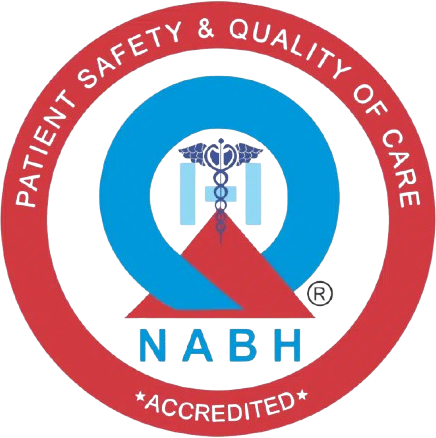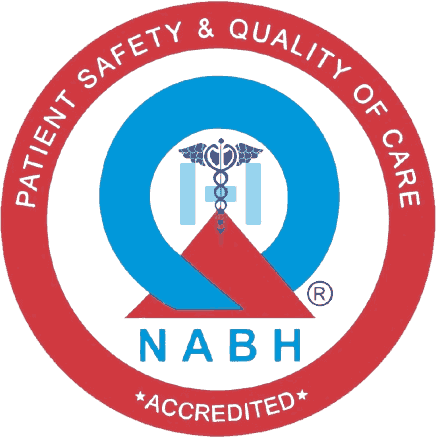Bone Marrow Transplant Program

Why Choose Health1 for Bone Marrow Transplant (BMT)
- All services under one roof: Patient evaluation, donor matching, transplant procedure, ICU care, advanced labs, pharmacy, counselling, and long-term follow-up.
- State-of-the-art facilities: Dedicated HEPA-filtered BMT units, Laminar airflow OTs, infection-controlled isolation rooms, and 24×7 lab and blood bank support.
- Expert multidisciplinary team: Experienced Hematologists, Oncologists, Transplant Physicians, Paediatric Hematology-Oncology experts, Critical Care Specialists, Transplant Nurses, and Coordinators.
- Patient-centric approach: Detailed counselling, transparent cost structures, and assistance with insurance and government schemes (PM-JAY eligible).
- Holistic post-transplant care: Immunosuppression monitoring, infection prophylaxis, nutrition, psychosocial support, and rehabilitation services.


What We Do
- Autologous Bone Marrow / Stem Cell Transplant — patient’s own stem cells used (e.g., multiple myeloma, lymphoma).
- Allogeneic Bone Marrow / Stem Cell Transplant — donor stem cells (matched sibling/unrelated donor) for blood cancers and bone marrow failure syndromes.
- Haploidentical Transplant — half-matched family donor option, expanding donor availability.
- Cord Blood Transplant — where suitable, depending on indication.
- Paediatric BMT — for thalassemia, sickle cell disease, immune deficiencies, and congenital marrow failure.

Advanced Facilities & Services (Under One Roof)
- Dedicated BMT Units: Positive-pressure, HEPA-filtered isolation rooms with strict infection control.
- Specialized BMT ICU: 24×7 transplant-trained intensivists, sepsis management, and advanced monitoring.
- Laboratory Support:
- Hematology, flow cytometry, cytogenetics, molecular diagnostics.
- HLA typing, crossmatch, and donor-recipient compatibility testing.
- Viral markers and therapeutic drug monitoring.
- Apheresis & Cryopreservation: Stem cell collection, processing, and storage.
- Blood Bank: 24×7 availability of irradiated, leukocyte-depleted blood components.
- Pharmacy: Comprehensive support with chemotherapy, conditioning regimens, and immunosuppressants.
- Radiotherapy Support: Available if needed for conditioning or relapse protocols.
- Nutrition & Psychological Care: Specialized BMT dieticians, counselling, and rehabilitation programs.


Patient Journey
- Referral & Registration → Case review, transplant coordinator assigned.
- Pre-Transplant Evaluation → Recipient work-up, donor search/matching, financial & legal counselling.
- Conditioning & Transplant Procedure → High-dose chemotherapy/radiotherapy followed by stem cell infusion.
- Inpatient Recovery → Intensive monitoring in HEPA-filtered BMT unit.
- Discharge & Follow-Up → Regular labs, graft monitoring, infection prevention, lifestyle counselling, and psychosocial support.


Donor & Legal Support
- Family donor evaluation with HLA typing and compatibility screening.
- Access to national/international donor registries for unrelated donors.
- Guidance for cord blood banking and utilization.
- Assistance with all statutory clearances and ethical approvals.



Safety & Quality
- International transplant protocols (EBMT/ASBMT guidelines).
- Dedicated infection-control and antimicrobial stewardship team.
- Continuous survival outcome audits and case reviews.
Financial Counselling
- Transparent transplant packages for autologous and allogeneic BMT.
- Support for insurance and cashless.
Disclaimer: Bone Marrow Transplant is a highly specialized therapy and is subject to patient evaluation, donor availability, and statutory clearances.

FAQs — Bone Marrow Transplantation (BMT)
1. What is a Bone Marrow Transplant (BMT)?
A bone marrow (or stem cell) transplant is a procedure where healthy stem cells are infused into the body to replace damaged or diseased bone marrow. It helps restore the body’s ability to produce healthy blood cells and fight infections.
2. Who needs a Bone Marrow Transplant?
- BMT is commonly advised for:
- Blood cancers like leukemia, lymphoma, multiple myeloma
- Bone marrow failure (e.g., aplastic anemia)
- Genetic diseases (e.g., thalassemia, sickle cell disease)
- Severe immune deficiencies in children
3. What are the types of Bone Marrow Transplant?
- Autologous BMT: Patient’s own stem cells are collected and given back.
- Allogeneic BMT: Stem cells come from a matched donor (sibling/unrelated).
- Haploidentical BMT: Stem cells from a half-matched family donor.
- Cord Blood Transplant: Stem cells from stored umbilical cord blood.
4. How is a donor selected?
Donors are matched using HLA typing (a special genetic test). A full sibling match is ideal, but unrelated donor registries and half-matched family donors (haplo) are also options.
5. What is the process of BMT?
- Evaluation & donor matching
- Conditioning treatment (high-dose chemotherapy/radiation to prepare the body)
- Stem cell infusion (through a vein, like a blood transfusion)
- Engraftment & recovery (new marrow starts making healthy cells)
6. How long does the patient stay in hospital?
The hospital stay usually lasts 3–6 weeks, depending on recovery, risk of infections, and complications.
7. What are the risks of Bone Marrow Transplant?
- Infections due to low immunity
- Bleeding or anemia
- Graft-versus-host disease (GVHD) in allogeneic transplants
- Organ complications (liver, lungs, heart) in rare cases
8. What is Graft-Versus-Host Disease (GVHD)?
GVHD happens when the donor’s immune cells attack the patient’s tissues. It may affect the skin, liver, or gut. Doctors manage GVHD with special medications and careful monitoring.
9. What precautions are needed after BMT?
- Stay in a clean, infection-controlled environment
- Follow prescribed medications & immunosuppressants
- Regular blood tests and follow-up visits
- Maintain a nutritious, hygienic diet
- Avoid crowds and sick contacts until immunity recovers
10. What is the success rate of Bone Marrow Transplant?
Success depends on the disease, stage, age, donor match, and overall health. With current protocols, many patients achieve long-term remission and cure.
11. Is BMT painful?
The stem cell infusion itself is painless (like a blood transfusion). The conditioning phase may cause side effects, but these are managed with supportive care.
12. How much does a Bone Marrow Transplant cost?
Cost varies based on type of transplant (autologous vs. allogeneic), donor availability, and treatment duration. Health1 provides transparent packages with support for PM-JAY, insurance, and EMI options.
13. Can children undergo BMT?
Yes. Children with conditions like thalassemia, sickle cell disease, or immune deficiencies can safely undergo BMT with good outcomes.
14. What is life like after a BMT?
Patients need regular follow-ups for the first year. With proper care, most can return to school, work, and normal life. Lifelong monitoring is needed for some conditions.


